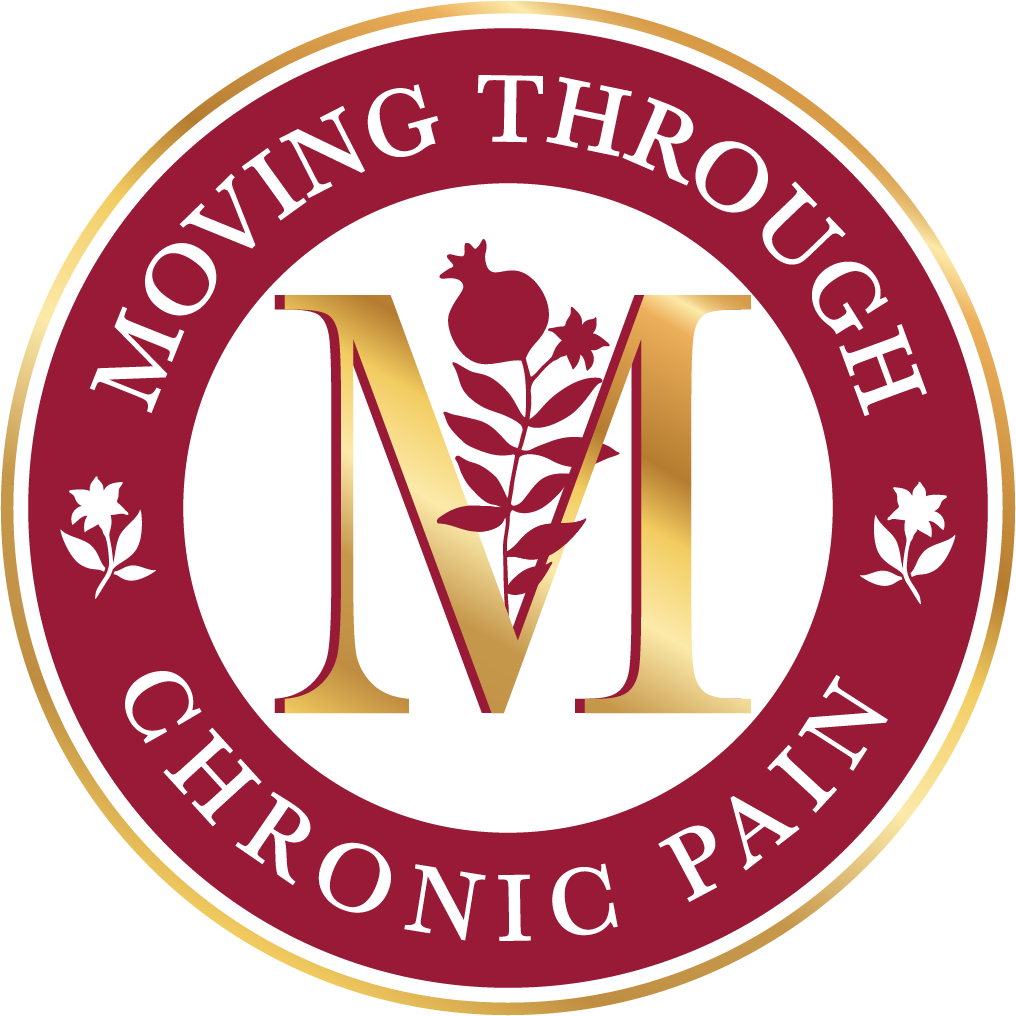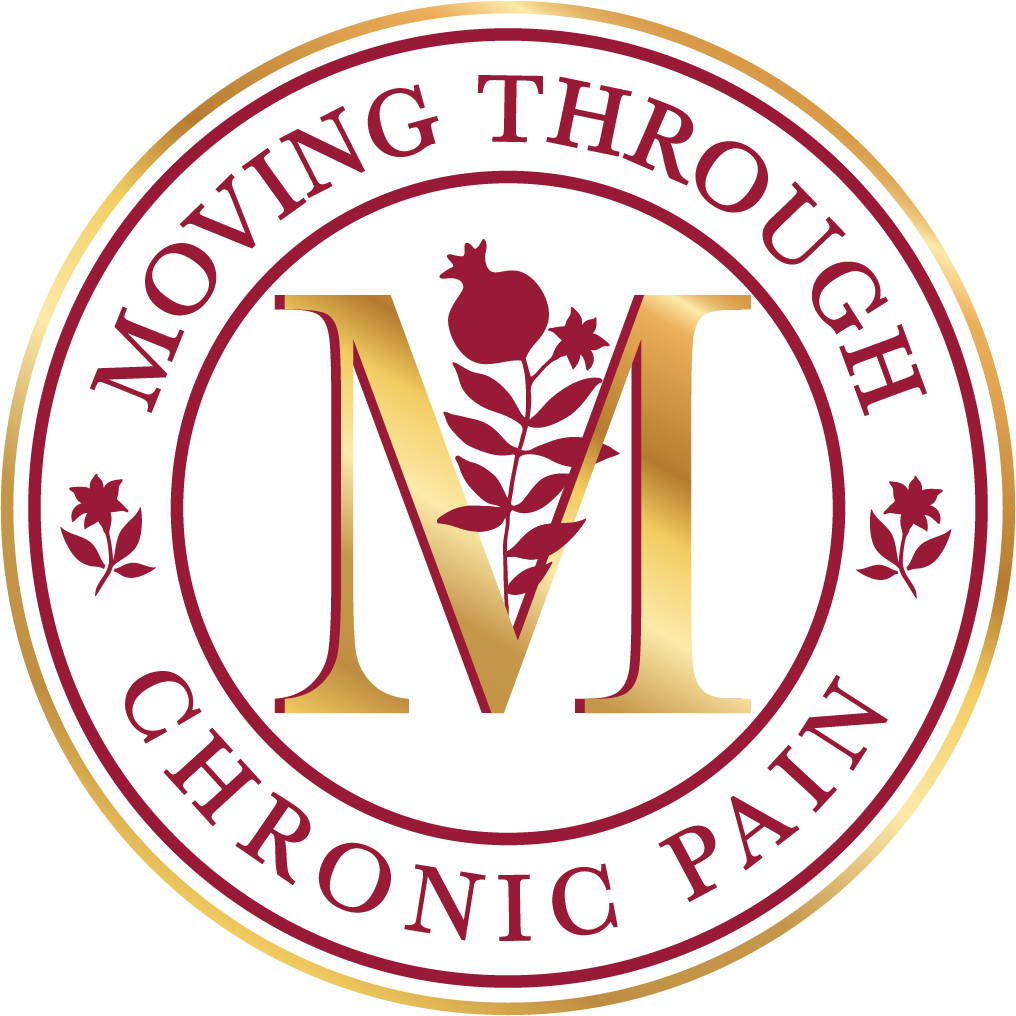HELPING MAKE YOUR CHRONIC PAIN JOURNEY EASIER
The pain cHronic•les
LATEST BLOG ARTICLES

Chronic pain is a complex and often misunderstood condition that affects millions of people around the world. It's important to note that every individual's experience with chronic pain can be unique, and what works for one person may not necessarily work for another. I’ll will be providing some insights into the causes, mechanisms, and challenges of chronic pain based on my personal experience in the hopes that it will help make your chronic pain journey easier.

Michelle Marikos, Founder & CEO
Moving Through Chronic Pain

Love and Relationships 2025
HELPING MAKE YOUR CHRONIC PAIN JOURNEY EASIER
Struggling to Navigate Relationships While Dealing with Chronic Pain?


Living with chronic pain affects far more than just physical health. It touches every aspect of life, including relationships with partners, family members, and close friends. Pain can be isolating, leading to frustration, misunderstandings, and even strained connections. Meanwhile, loved ones often struggle to understand the experience and may not know how to provide the right support.
Despite these challenges, relationships can thrive when built on communication, empathy, and a willingness to adapt. Understanding how chronic pain influences relationships and learning strategies for maintaining strong connections can help individuals and their support networks navigate this journey together. of chronic pain.
How Chronic Pain Affects Relationships
Emotional and Mental Toll
Chronic pain does not exist in a vacuum. It often brings anxiety, depression, irritability, or mood swings, which can affect interactions with loved ones. Many people living with pain feel guilty for not being as present or engaged as they would like to be. On the other hand, family members and partners may feel helpless or unsure of how to respond, leading to frustration on both sides.
Unpredictability and Changing Plans
Pain is often unpredictable. Some days are better than others, making it difficult to commit to plans in advance. Canceled outings, missed events, or last-minute changes can create tension in relationships, especially when loved ones do not fully understand why these shifts occur. Over time, this unpredictability can lead to disappointment, resentment, or a sense of disconnection.
Shifting Roles and Responsibilities
When pain limits a person's ability to complete daily tasks, responsibilities within a household or relationship may shift. A partner or family member may take on additional caregiving duties, which can alter the dynamic of the relationship. While many loved ones are willing to help, the added stress can sometimes lead to burnout or emotional distance if these changes are not openly discussed and managed together.
Challenges with Physical and Emotional Intimacy
Chronic pain can affect both physical and emotional intimacy. Physical touch may become uncomfortable or even painful, leading to avoidance of closeness. This can create distance in romantic relationships if couples do not find alternative ways to express affection and maintain emotional connection. Intimacy is more than just physical touch—it includes deep conversations, shared laughter, and emotional vulnerability. Finding ways to nurture these aspects of a relationship is crucial.
Strategies for Strengthening Relationships While Living with Chronic Pain
Prioritize Open Communication
Honest, ongoing conversations about pain, needs, and limitations are essential for maintaining strong relationships. It is important to express feelings without guilt and set realistic expectations with loved ones. Likewise, family members and partners should feel comfortable voicing their own concerns and emotions. Approaching these discussions with patience and understanding can help prevent resentment from building over time.
Foster Empathy and Understanding
Living with pain can be difficult to understand for those who do not experience it firsthand. Providing clear explanations about how pain affects daily life can help loved ones develop empathy. Encouraging them to learn more about chronic pain conditions through books, articles, or support groups can also create a deeper sense of understanding. At the same time, people in pain should acknowledge the impact their condition has on their loved ones and recognize their efforts to provide support.
Create Flexible Plans and Expectations
Rather than making rigid commitments, adopting a flexible approach to plans can help reduce frustration for both individuals and their loved ones. Instead of completely avoiding social outings or activities, consider modifying plans to accommodate pain levels. For example, choosing locations with seating options, setting shorter timeframes for events, or having backup plans for rest can make socializing more manageable.
Maintain Emotional and Physical Connection
When physical affection is challenging due to pain, couples can find other ways to nurture closeness. Simple gestures like holding hands, spending quality time together, or engaging in meaningful conversations can help maintain emotional intimacy. Exploring new ways to connect, such as sharing a hobby, cooking together, or practicing relaxation techniques, can also strengthen the bond between partners.
Seek Support from Medical Providers and Peer Groups
Healthcare providers play a crucial role in addressing both the physical and emotional aspects of chronic pain. Medical professionals, counselors, or therapists can help couples and families develop coping strategies to manage the impact of pain on their relationships. Peer support groups can also provide valuable insight from others who understand these challenges firsthand, offering encouragement and guidance.
Love and Connection Are Still Possible
Chronic pain changes many aspects of life, but it does not have to take away meaningful relationships. When both individuals in a relationship commit to communication, adaptability, and mutual support, connections can remain strong despite the challenges. Love, patience, and understanding create the foundation for relationships that can withstand the ups and downs of living with pain.
If you or someone you love is navigating relationships while managing chronic pain, remember that support and resources are available. The journey may be difficult at times, but with empathy, communication, and a willingness to adapt, strong and fulfilling relationships are still possible.
#chronicpain #understandingpain #painawareness #peersforpain #invisibleillness #love #relationships
Michelle Marikos’ fall from a balcony in her early twenties, and her subsequent decades long debilitating chronic pain, inspired her to launch Moving Through Chronic Pain and her PEER™ Method programs to facilitate deeper connections between those living with chronic pain and their community of providers, employers, and family members.

Michelle Marikos, Founder & CEO
Moving Through Chronic Pain

Love and Relationships 2025
HELPING MAKE YOUR CHRONIC PAIN JOURNEY EASIER
Struggling to Navigate Relationships While Dealing with Chronic Pain?


Living with chronic pain affects far more than just physical health. It touches every aspect of life, including relationships with partners, family members, and close friends. Pain can be isolating, leading to frustration, misunderstandings, and even strained connections. Meanwhile, loved ones often struggle to understand the experience and may not know how to provide the right support.
Despite these challenges, relationships can thrive when built on communication, empathy, and a willingness to adapt. Understanding how chronic pain influences relationships and learning strategies for maintaining strong connections can help individuals and their support networks navigate this journey together. of chronic pain.
How Chronic Pain Affects Relationships
Emotional and Mental Toll
Chronic pain does not exist in a vacuum. It often brings anxiety, depression, irritability, or mood swings, which can affect interactions with loved ones. Many people living with pain feel guilty for not being as present or engaged as they would like to be. On the other hand, family members and partners may feel helpless or unsure of how to respond, leading to frustration on both sides.
Unpredictability and Changing Plans
Pain is often unpredictable. Some days are better than others, making it difficult to commit to plans in advance. Canceled outings, missed events, or last-minute changes can create tension in relationships, especially when loved ones do not fully understand why these shifts occur. Over time, this unpredictability can lead to disappointment, resentment, or a sense of disconnection.
Shifting Roles and Responsibilities
When pain limits a person's ability to complete daily tasks, responsibilities within a household or relationship may shift. A partner or family member may take on additional caregiving duties, which can alter the dynamic of the relationship. While many loved ones are willing to help, the added stress can sometimes lead to burnout or emotional distance if these changes are not openly discussed and managed together.
Challenges with Physical and Emotional Intimacy
Chronic pain can affect both physical and emotional intimacy. Physical touch may become uncomfortable or even painful, leading to avoidance of closeness. This can create distance in romantic relationships if couples do not find alternative ways to express affection and maintain emotional connection. Intimacy is more than just physical touch—it includes deep conversations, shared laughter, and emotional vulnerability. Finding ways to nurture these aspects of a relationship is crucial.
Strategies for Strengthening Relationships While Living with Chronic Pain
Prioritize Open Communication
Honest, ongoing conversations about pain, needs, and limitations are essential for maintaining strong relationships. It is important to express feelings without guilt and set realistic expectations with loved ones. Likewise, family members and partners should feel comfortable voicing their own concerns and emotions. Approaching these discussions with patience and understanding can help prevent resentment from building over time.
Foster Empathy and Understanding
Living with pain can be difficult to understand for those who do not experience it firsthand. Providing clear explanations about how pain affects daily life can help loved ones develop empathy. Encouraging them to learn more about chronic pain conditions through books, articles, or support groups can also create a deeper sense of understanding. At the same time, people in pain should acknowledge the impact their condition has on their loved ones and recognize their efforts to provide support.
Create Flexible Plans and Expectations
Rather than making rigid commitments, adopting a flexible approach to plans can help reduce frustration for both individuals and their loved ones. Instead of completely avoiding social outings or activities, consider modifying plans to accommodate pain levels. For example, choosing locations with seating options, setting shorter timeframes for events, or having backup plans for rest can make socializing more manageable.
Maintain Emotional and Physical Connection
When physical affection is challenging due to pain, couples can find other ways to nurture closeness. Simple gestures like holding hands, spending quality time together, or engaging in meaningful conversations can help maintain emotional intimacy. Exploring new ways to connect, such as sharing a hobby, cooking together, or practicing relaxation techniques, can also strengthen the bond between partners.
Seek Support from Medical Providers and Peer Groups
Healthcare providers play a crucial role in addressing both the physical and emotional aspects of chronic pain. Medical professionals, counselors, or therapists can help couples and families develop coping strategies to manage the impact of pain on their relationships. Peer support groups can also provide valuable insight from others who understand these challenges firsthand, offering encouragement and guidance.
Love and Connection Are Still Possible
Chronic pain changes many aspects of life, but it does not have to take away meaningful relationships. When both individuals in a relationship commit to communication, adaptability, and mutual support, connections can remain strong despite the challenges. Love, patience, and understanding create the foundation for relationships that can withstand the ups and downs of living with pain.
If you or someone you love is navigating relationships while managing chronic pain, remember that support and resources are available. The journey may be difficult at times, but with empathy, communication, and a willingness to adapt, strong and fulfilling relationships are still possible.
#chronicpain #understandingpain #painawareness #peersforpain #invisibleillness #love #relationships
Michelle Marikos’ fall from a balcony in her early twenties, and her subsequent decades long debilitating chronic pain, inspired her to launch Moving Through Chronic Pain and her PEER™ Method programs to facilitate deeper connections between those living with chronic pain and their community of providers, employers, and family members.

Michelle Marikos, Founder & CEO
Moving Through Chronic Pain

